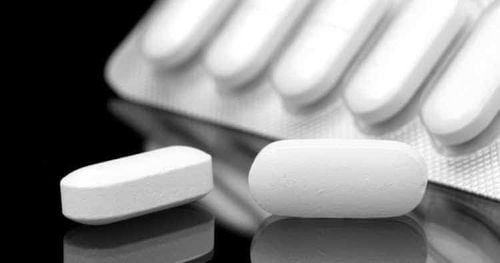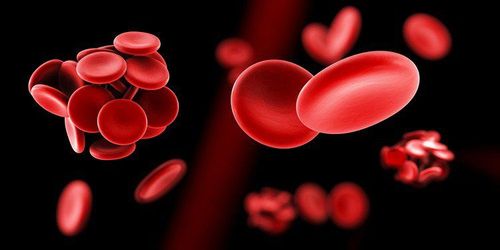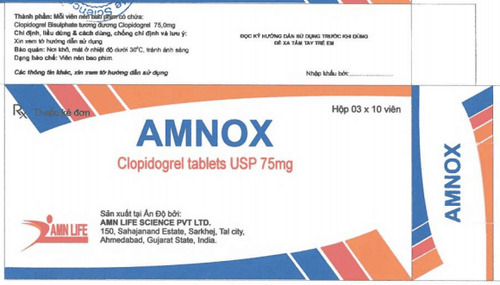This is an automatically translated article.
Heparin is an anticoagulant, which can prevent the formation of blood clots. When using Heparin anticoagulant, patients should absolutely follow the doctor's instructions.
1. What are the effects of Heparin?
Heparin is an anticoagulant that helps prevent the formation of blood clots. Heparin can be used to:
Treat and prevent blood clots in the arteries, veins, and lungs. Use before surgery to reduce the risk of blood clots. However, heparin injection should not be used to clear an intravenous catheter.
2. Indications and contraindications to the drug Heparin
2.1. Point
Prevention and treatment of deep vein thrombosis. Prevention and treatment of pulmonary embolism. Adjunctive therapy in patients with acute myocardial infarction to reduce the risk of thromboembolic complications, especially in patients with shock, persistent arrhythmias, congestive heart failure, and previous myocardial infarction. Low-dose regimen for the prevention of venous thrombosis and pulmonary embolism after major surgery in patients with a history of thromboembolism and in patients requiring prolonged post-operative immobilization, especially those over 40 age. Treatment of arterial thrombosis. Prevention of thrombosis in pregnant women who are potentially prone to thrombosis. Used as an anticoagulant in blood transfusion, extracorporeal circulation when performing surgery, hemodialysis and blood preservation for testing.
2.2. Contraindications
People with hypersensitivity to Heparin. Threatened miscarriage, unless accompanied by intravascular coagulation. The patient has bleeding ulcers, malignancies, and peptic ulcers. Patients with severe coagulopathy, lumbar puncture or peridural puncture, sympathetic blockade, infective endocarditis. People with injuries, trauma and surgery in the central nervous system, in the ears and eyes (still can use low doses to prevent thrombosis). Patients with severe thrombocytopenia but not able to do coagulation tests when taking full dose of Heparin.
3. How to use and dose of Heparin
3.1. How to use
Patients can use Heparin subcutaneously or intravenously through a vein. The patient can be instructed on how to give the injection at home. However, if you do not understand how to inject, you should not do it yourself. In addition, patients should not use Heparin syringes if they change color or deposit, form granules,... Patients can switch from Heparin injection to oral oral form to thin the blood. Do not stop taking the medicine without consulting your doctor.

Bệnh nhân có thể dùng thuốc Heparin tiêm dưới da hoặc tiêm vào tĩnh mạch qua tĩnh mạch.
3.2. Dosage
It is necessary to strictly follow the instructions of the doctor during the use of Heparin anticoagulant. Basic dosing information for some health problems is as follows:
Adults with blood vessel obstruction requiring continuous intravenous infusion: Intravenous drug form: 5,000 units/time, followed by intravenous infusion Continuous circuit 1,300 units/hour. In addition, the patient can be injected intravenously 1 dose of 80 units / time. Thereafter, a continuous intravenous infusion of 18 units/kg/hour was given. Subcutaneous injection: Administer 17,500 units subcutaneously every 12 hours. Dosage was adjusted to maintain aPTT between 1.5 and 2.5 times the normal range. Adults with vascular occlusion - prevention: 5000 units subcutaneously every 8 - 12 hours. Dosage may be adjusted to maintain above-normal aPTT levels. Adults with pulmonary embolism: Continuous intravenous infusion: 5,000 units/time, followed by continuous intravenous infusion of 1,300 units/hour. In addition, the patient can be injected intravenously 1 dose of 80 units / time. Thereafter, a continuous intravenous infusion of 18 units/kg/hour was given. If pulmonary embolism is suspected, the appropriate initial dose is 1 intravenous dose of 10,000 units, followed by 1,500 units/hour. Continuous subcutaneous injection: Administer 17,500 units subcutaneously every 12 hours. Dosage was adjusted to maintain aPTT between 1.5 and 2.5 times the normal range. Adults with myocardial infarction: Administer 5,000 units intravenously once as a large dose, followed by 1,000 units/hour by continuous intravenous infusion. Adults with angina: Administer 5,000 units intravenously once as a large dose, followed by 1,000 units/hour by continuous intravenous infusion. Adults with anticoagulation during pregnancy: Administer 5,000 units subcutaneously every 12 hours. Dosage may be adjusted to maintain 6-hour aPTT levels at 1.5 times control or greater. Adults with thromboembolic disease/thromboembolism: Use 100 units/ml every 6-8 hours for PVC catheters and peripheral heparin. Additional tubes will be injected when blood is stagnant, which should be observed in the catheter, after administration for medication or blood, and after blood is drawn from the catheter. Children with thrombotic/thromboembolic disease: 10 units/ml every 6-8 hours. The pediatric dose is 100 units/100ml every 6 to 8 hours for PVC catheters and peripheral heparin locks. Additional tubes are injected when blood is stagnant, observed in catheters, catheters after they are used to control medication or blood, and after blood is drawn from the catheters. Add 0.5 - 1 unit/ml to the periphery and central TNP to increase clearance time.
4. Side effects
Some people who inject Heparin have a reaction to the infusion when the drug is given intravenously. Such reactions are usually nausea, dizziness, sweating, or difficulty breathing during or after the injection.
Patients using Heparin may also experience some less serious side effects such as: Mild pain, slight itching in the legs, changes in the skin where the injection was given, blue skin,... Patients may have osteoporosis when they use Heparin. long-term high-dose heparin treatment.
Stop using Heparin and call your doctor right away if you experience serious side effects such as:
Sudden numbness or unwellness, especially on one side of the body. Chest pain, sudden cough, rapid breathing, wheezing, rapid heart rate. Sudden severe headache, vision problems, confusion, problems with language or balance. Pain, swelling, heat, redness in one or both legs. Shortness of breath. Drowsiness, weakness, or gasping (in infants). Fever, chills, watery eyes or runny nose.
5. Be careful when using Heparin
Before taking Heparin, the patient should tell the doctor if:
Are allergic to Heparin or any other medicine, allergic to pork, beef or any ingredient in Heparin injection. Are taking or plan to take medications, vitamins, supplements, and herbal products. Especially medicines such as: Other anticoagulants such as warfarin, antihistamines in cough and cold products, antithrombin III, aspirin or aspirin-containing medicines, and other nonsteroidal anti-inflammatory drugs such as naproxen and ibuprofen, hydroxychloroquine, quinine, dextran, dipyridamole, digoxin, tetracycline antibiotics such as doxycycline, demeclocycline, minocycline or tetracycline. The doctor may need to change the dose or monitor the patient carefully to prevent side effects. Have low platelet levels, if you have heavy bleeding that does not stop in any part of the body. The doctor will tell the patient whether to use Heparin or not. Are menstruating, have a fever or infection, have recently had a spinal tap, have a spinal anesthetic, had surgery (especially involving the brain, eyes, or spinal cord) or had a heart attack. Have or have ever had a bleeding disorder such as hemophilia, antithrombin III deficiency, blood clots in the legs, lungs or elsewhere on the body, stomach or intestinal ulcers, unusual bruising or spots cyanosis, cancer, having a gastric or intestinal catheter, liver disease, or high blood pressure. Are pregnant, plan to become pregnant or are breast-feeding. Having surgery (including dental surgery). Smoking or using tobacco products. Smoking can decrease the effectiveness of Heparin. There are no adequate studies on the risks of using Heparin in pregnant or nursing mothers. Before taking the drug, the patient should consult the doctor.
6. Heparin drug interactions
Drug interactions can change the ability of the drug to work or increase side effects. Patients should tell their doctor about the medications they are taking. At the same time, do not arbitrarily take medicines, stop taking them or change their dosage without your doctor's approval.
Inform your doctor if you are taking the following medicines: Other anticoagulants such as warfarin, digoxin, dipyridamole, hydroxychloroquine, ibuprofen, indomethacin, nicotine tobacco, lozenges, antibiotics (demeclocycline, doxycycline, or tetracycline), skin patches, nitroglycerin, cold, allergy or sleeping pills, salicylates such as aspirin, kaopectate, Tricosal, Trilisate, Pamprin Cramp Formula,... Consult your doctor about taking this medication with food. , alcohol and tobacco. Tell your doctor if you have any health problems such as: Bacterial endocarditis (infection), bleeding problems (hemophilia), high blood pressure, heavy or irregular menstrual periods, surgery major surgery (brain, eyes, spine), spinal anesthesia or stomach ulcers, intestinal ulcers, liver disease, bleeding or thrombocytopenia, severe thrombocytopenia.
7. Some notes when using Heparin
Overdose: Symptoms of overdose are bleeding, nosebleeds, blood in the urine, black stools, easy bruising, petechiae,... If the overdose is mild, just stop taking Heparin. In case of an emergency, the patient immediately calls 911 emergency center or goes to the nearest medical facility for intervention; Missed dose: If a dose is missed, the patient should take it as soon as possible. If it is almost time for the next dose, the patient should skip the missed dose and take the next dose at the scheduled time. Never use twice the prescribed dose; Storage: Store Heparin at room temperature, away from moisture and direct light. Do not store medicine in the bathroom or freezer. Also, keep the medicine out of the reach of children and pets. Do not use the medicine when it is cloudy or discolored. When using Heparin anticoagulant, patients need to absolutely follow the doctor's instructions to ensure the best therapeutic effect and reduce the risk of unpredictable complications.
Reference source: hellobacsi.com; dietutri.vn; canhgiacduoc.org.vn; bvtrungvuong.vn













